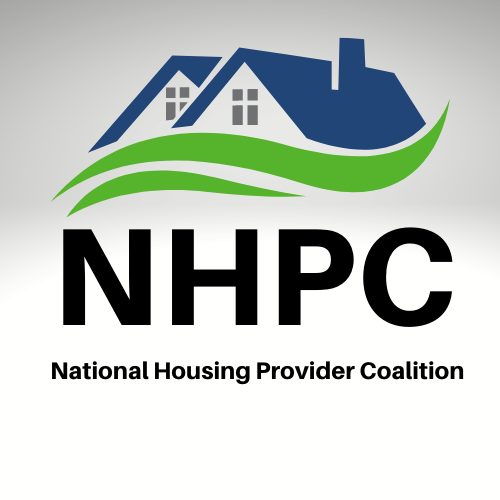
Letter to Congress
The U.S. Census Bureau estimates that as many as 34 million individual renters in the United States are at risk of eviction when the CDC and state eviction moratoriums are lifted. 1 Almost nine percent of all US residents are at risk of being displaced. This would represent a human tragedy on a scale not experienced in the US since the Great Depression.
Small property owners continue to play a central role in America’s rental housing. A June 2020 study by HUD and the US Census Bureau, found that over 40 percent of all rental properties are owned by individual investors, and many of these properties are mortgaged.2 The non-partisan Urban Institute reported in November that 31 percent of surveyed small landlords felt pressure to sell their properties because of missed rent payments associated with the Pandemic. 3 In a survey done by the Kansas City Regional Housing Alliance, a coalition of housing providers representing over 100,000 rental units, Stacey Johnson-Cosby, president of the group says that “42% of my peers said that they will sell their properties because of a loss of income during the eviction moratorium. We cannot afford to lose this inventory owned by the small-medium housing providers. The corporate, Wall Street investors will be the ones swooping in to buy these properties if we are forced to fail.”
An analysis prepared for the National Council of State Housing Finance Agencies estimates that by January 2021, renters who are in danger of eviction will owe between $25.1 billion and $34.3 billion in back rent. This is money that property owners are unlikely to collect. According to a small housing provider in Indiana, Grant Anderson says, “I am running through my reserves at a staggering rate due to the non-payment of rent. One tenant is not attempting to make additional rent payments and will owe thousands of dollars that I will not be able to collect. Therefore, I am not only paying for my family to live, but I am also paying for this tenant’s family to live for free. Like most other landlords, I am not in the position to continue this. I am struggling to survive myself, but my only options are to not pay my mortgage and leave my family homeless or not pay his mortgage and the tenant can deal with the bank as a new owner.”
Only swift and decisive action by the US Congress can prevent massive losses to small property owners. Without rental support, small landlords will be forced to choose between losing their properties and evicting non-paying tenants. A wave of evictions will almost certainly worsen the Pandemic. Preliminary results of a study conducted by faculty from Johns Hopkins, UCLA, Wake Forest University, and Boston University indicate that Covid infections increase 210% ten weeks after eviction moratoriums have been lifted. Deaths from Covid increased 5.4 times seven weeks following the expiration of eviction moratoriums.4 The social costs are not limited to health care expenses and risks of overwhelming our already burdened hospitals. Inevitably, forcing families from their homes will also cause children to fall further behind in school. Taxpayers will bear the burden of these costs for years to come.
While moratoriums have softened a dangerous spike in evictions, this solution places an inequitable burden on small property owners. These owners still must pay mortgages, taxes, and insurance as well as the ongoing costs for management and maintenance. In many cases, these small properties are vital for retirement investments.
“Swift action by the federal government is necessary to avert a social and economic crisis. We cannot afford the damage to our economy and the social fabric of our country that will result from mass evictions. Nor can we reasonably expect small property owners to bear the brunt of the cost of housing persons until the crisis is abated”, according to Adam Abram, independent housing provider and Board Chair of the North Carolina Housing Finance Agency.
John Sebree, CEO of the Missouri Realtors, shares what steps the property management and real estate industry say should be done immediately to prevent a rush on evictions and preserve current rental housing inventory levels without further losses attributed to foreclosures or liquidating inventory because of nonpayment.
Federal – As steps are taken to address COVID-19 relief and government funding, we urge Congress to include the following in the next package (find attached the detailed GUIDELINES for Federal Emergency Eviction Prevention Assistance)
- Provide Financial Assistance to Renters in Need, specifically tying it to any Eviction Moratoriums
- Utilize Alternatives to Eviction Moratoriums that Provide Emergency Rental Assistance to Residents, Property Owners and Managers Alike in order to Prevent the Eviction
- Expand the Small Business Administration’s (SBA) Paycheck Protection Program (PPP) to Include All Multifamily Businesses
- Provide Full-Year Funding for Fiscal Year 2021 for the Department of Housing and Urban Development and the Department of Agriculture’s Rental Assistance Programs
State – State Level Requests
- Maximize any Financial Assistance programs for Renters in Need by Working Directly w/Housing Providers to Determine Program Guidelines & a Specific Strategy to Get the Word Out to Those in Need
- Utilize Alternatives to Eviction Moratoriums that Provide Emergency Assistance to Residents, Property Owners and Managers Alike
- Provide Full-Year Funding for Fiscal Year 2021 for any state government housing programs: through the Missouri Department of Mental Health, Missouri Housing Development Commission, HUD, etc.
Congress has already allocated substantial funds to assist people unemployed because of Covid-19. That relief, along with other federal and state actions, helped the US avoid an even deeper economic downturn. We applaud the bold action Congress took at the onset of this crisis and believe Congress should be proud of its important work to help families and small businesses impacted by the Pandemic. However, the funds allocated for rental support are now exhausted. The end is in sight, but there is a real danger that the expenditures already made will be wasted if we do not continue to protect vulnerable workers and property owners. Only Congress can provide the necessary financial bridge to protect families and small businesses
until this crisis is over.
Please act now to provide a bridge to that recovery for renters and housing providers in the form of expanded unemployment benefits and direct payments of rental assistance – including funding tied directly to any eviction moratoriums. See the link to our petition at: https://www.change.org/FundRentalAssistance
Stacey Johnson-Cosby
National Housing Provider Coalition
816-591-5921/cell+text, StaceyKCAgent@gmail.com
1 “Analysis of Current and Expected Rental Shortfall and Potential Evictions in the U.S. Stout Report, September 25, 2020. Prepared for the National Council of State Housing Agencies.
2 HUD Press Release No. 20-071 HUD Public Affairs, “HUD and CENSUS BUREAU RELEASE FINDING OF RENTAL HOUSING FINANCE SURVEY
3 Choi, J.H and Goodman, Laurie. Urban Wire, The blog of the Urban Institute, November 10, 2020
4 Leifheit, Kathryn M. Ph.D. MSPH and Benifer, Emily A., JD LLM “Eviction, Housing Instability, and COVID-19 Cases & Deaths” Summary presentation of a work in progress.

